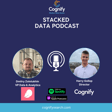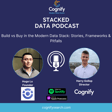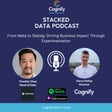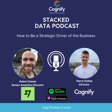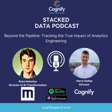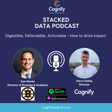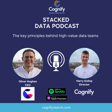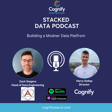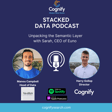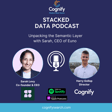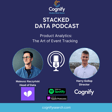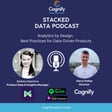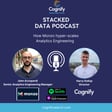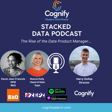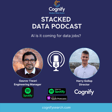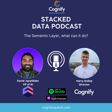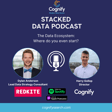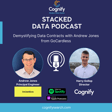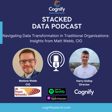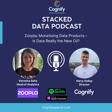
008 - Analytics Engineering: Driving Reliability, Accuracy, and Velocity
AI and LLM’s have soared into the mainstream, but did you know @Cleo has been pioneering in this space for years?
Join me on @stacked as I dive into conversation with Andrea, the Lead Analytics Engineer at Cleo. He unveils his fascinating journey from Data Science to Analytics Engineering, a transition many can resonate with. Discover how Analytics Engineering is transforming data reliability, accuracy, and velocity to drive invaluable insights for Celo.
🎙️ Highlights Include:
1) The DS to AE Journey: Spending 70% of his time transforming data, Andrea noticed a lack of clear consistency in data quality—a common post-DS hype challenge.
2) Rise of AE and Data Modeling: In a world with more complex data, more analysts, and a growing push to be "data-driven," Analytics Engineers are recognized for their crucial role in creating high-quality, trustworthy modeled data.
3) Justifying AE Team Costs: Cleo treats Analytics Engineering like a standard Product quad, aligning OKRs with stakeholders' needs and measuring success metrics.
4) Automated PR Reviews: Cleo's team ensures efficiency and data quality by implementing an automated PR review system in dbt, scoring queries out of 100% and providing valuable recommendations.
Andrea shares even more insights in the episode! If you're curious about what Analytics Engineering truly entails, the challenges it faces, and where the sector is heading, this episode is a must-listen.
